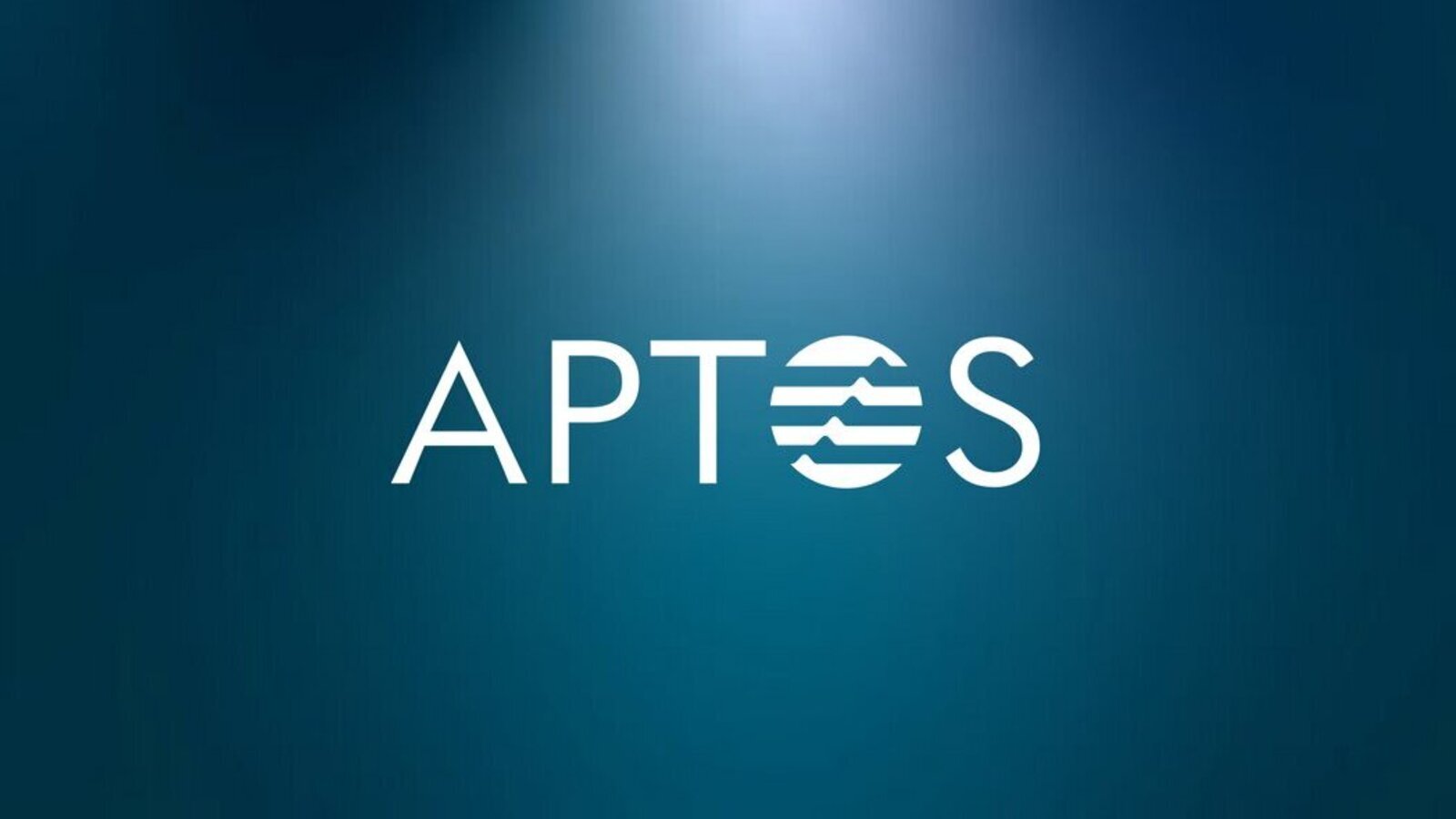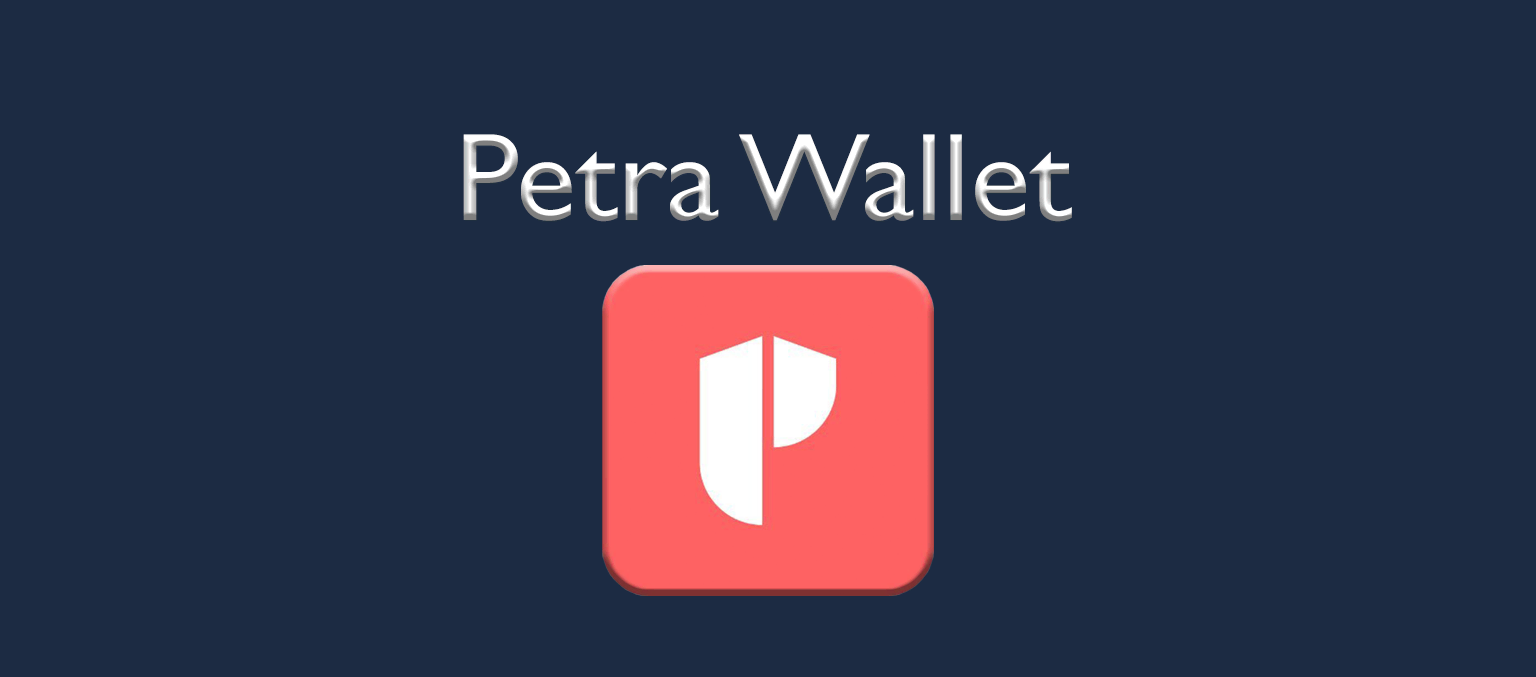ARTICLE AD BOX

Introduction to Aptos (APT) Tokens
Aptos (APT) is a next-generation Layer 1 blockchain designed for high scalability, low latency, and security. Built using the Move programming language, Aptos offers a high-performance ecosystem that supports smart contracts, decentralized applications (dApps), and digital assets. The network aims to provide a seamless and user-friendly experience for developers and end-users, making it an attractive choice for DeFi, gaming, and NFT projects.
Efficiently managing Aptos (APT) requires a compatible wallet, whether it is a hardware wallet, mobile wallet, desktop wallet, or web-based wallet. This guide explores various wallet options, explains how to add and transfer APT, and highlights essential security practices to safeguard your funds.
Selecting the right Aptos-compatible wallet is crucial for smooth transactions, liquidity management, and interacting with dApps. Hardware wallets provide the highest level of security by storing private keys offline, while software wallets such as Petra Wallet, Martian Wallet, and Pontem Wallet offer a balance between accessibility and security, allowing users to manage their assets conveniently. Many of these wallets integrate with DeFi services, enabling users to swap APT, stake tokens, or participate in liquidity pools.
Furthermore, securely storing private keys, identifying phishing attempts, and enabling two-factor authentication (2FA) are key measures to prevent unauthorized access to your assets. Whether you’re a trader, DeFi user, or long-term investor, having a reliable Aptos-compatible wallet ensures efficient APT management while minimizing security risks.
Choosing the Right Wallet for Your Aptos (APT)
Types of Aptos Wallets
Aptos (APT) is a high-performance Layer 1 blockchain designed for scalability, low latency, and security. Efficiently managing APT requires selecting the right wallet, whether a hardware wallet, mobile wallet, desktop wallet, or web-based wallet.
This guide explores different Aptos-compatible wallets, explains how to add and transfer AP, and highlights essential security measures to protect your assets.
Best Wallets for Managing Aptos (APT)
- Hardware Wallets (e.g., Ledger, Trezor): Best for long-term security and large holdings.
- Browser Extension Wallets (e.g., Petra Wallet, Martian Wallet): Ideal for interacting with dApps and quick transactions.
- Mobile Wallets (e.g., Pontem Wallet, Fewcha Wallet): Great for on-the-go access and multi-chain support.
- Web Wallets: Convenient but riskier, as private keys are stored online.
Security: Your Assets’ First Line of Defense
Security should be a top priority when choosing an Aptos wallet. A secure wallet protects against phishing attacks, unauthorized access, and potential exploits.
- Hardware wallets such as Ledger and Trezor offer the highest level of security by keeping private keys offline, making them resistant to hacking attempts.
- Software wallets like Petra Wallet and Martian Wallet provide security features such as encrypted private keys and two-factor authentication (2FA) but remain connected to the internet, making them more vulnerable to cyber threats.
To Improve Wallet Security:
- Enable two-factor authentication (2FA) where possible.
- Use strong passwords and store your seed phrase securely offline.
- Avoid sharing your seed phrase or storing it digitally.
- Consider using a combination of a hardware wallet and a software wallet for additional protection.
Ease of Use: A Smooth User Experience
A wallet should be intuitive and user-friendly, especially for beginners.
- Petra Wallet is one of the most popular wallets for storing APT, offering browser and mobile support, seamless dApp integration, and secure storage.
- Martian Wallet provides an easy-to-navigate interface with built-in staking and DeFi access.
- Pontem Wallet is another beginner-friendly option with Aptos-native dApp integrations and NFT management.
For users who prefer mobile accessibility, wallets like Fewcha Wallet and Martian Wallet offer well-designed mobile apps that provide secure and convenient access to APT*
Beyond ease of use, an ideal wallet should also offer features like:
- APT staking and DeFi management
- In-wallet token swaps
- Multi-chain support for compatibility with other blockchains
Functionality: More Than Just Storage
A good wallet does more than just store APT—it should offer features that enhance the overall user experience. Advanced users often require:
- DeFi integrations to stake APT, provide liquidity, or interact with lending platforms.
- NFT storage and trading support for those involved in digital collectibles.
- Multi-chain compatibility for users managing assets across different networks.
For example:
- Martian Wallet and Petra Wallet support Aptos-native dApps, allowing users to store and stake APT seamlessly.
- Pontem Wallet offers direct access to DeFi applications, making it a convenient choice for yield farming and liquidity provision.
Considerations for Choosing a Wallet
Before selecting an Aptos wallet, consider the following:
- Security Preferences: Hardware wallets (like Ledger Nano X) offer the highest security as they store private keys offline, while web wallets, though convenient, are more susceptible to phishing attacks and hacks.
- Ease of Use: Mobile and desktop wallets such as Martian Wallet and Fewcha Wallet provide user-friendly interfaces, making them ideal for beginners.
- Additional Features: Some wallets support in-wallet staking, token swaps, and NFT management, enhancing their overall functionality beyond simple storage and transfers.
Popular Wallets for Aptos (APT)
- Petra Wallet: A popular browser extension and mobile wallet for APT transactions.
- Martian Wallet: A browser-based wallet with DeFi and staking support.
- Pontem Wallet: A multi-purpose Aptos wallet with direct dApp integration.
- Fewcha Wallet: A secure, mobile-friendly wallet designed for Aptos users.
- Ledger Nano X: A top-tier hardware wallet offering cold storage security for APT.
Choosing the Right Wallet for Your Aptos (APT)
Best Wallets for Managing Aptos (APT)
Aptos (APT) is a high-performance Layer 1 blockchain built using the Move programming language to enable fast, secure, and scalable transactions. Choosing the right Aptos wallet is essential for managing your assets, staking APT, interacting with dApps, and ensuring security.
Types of Aptos Wallets
- Hardware Wallets (e.g., Ledger Nano X): Best for long-term security and large holdings.
- Browser Extension Wallets (e.g., Petra Wallet, Martian Wallet): Ideal for interacting with dApps and quick transactions.
- Mobile Wallets (e.g., Pontem Wallet, Fewcha Wallet): Great for on-the-go access and staking support.
- Web Wallets: Convenient but riskier, as private keys are stored online.
Top Wallets for Aptos (APT)
1. Petra Wallet

Petra Wallet is one of the most widely used Aptos wallets, designed for ease of use, security, and dApp integration. As an Aptos-native wallet, Petra allows users to send, receive, and store APT while interacting with Aptos DeFi, NFT marketplaces, and staking services.
With browser extension and mobile support, Petra Wallet provides a smooth user experience, making it a preferred choice for both beginners and experienced crypto users. Petra also features hardware wallet integration with Ledger, offering enhanced security for long-term APT storage.
2. Martian Wallet

Martian Wallet is a user-friendly Aptos wallet designed for DeFi, NFT, and staking integration. As a non-custodial wallet, Martian ensures that users retain full control over their private keys, enhancing security and decentralization.
Martian Wallet features:
- Easy staking and delegation for APT
- Seamless integration with Aptos dApps
- Supports multi-chain wallets for cross-network functionality
- Compatible with browser and mobile platforms
3. Ledger Nano X

The Ledger Nano X is a top-tier hardware wallet offering cold storage security for Aptos (APT) and a wide range of other cryptocurrencies. By keeping private keys offline, it eliminates exposure to online threats such as hacking, phishing, and malware attacks.
Why choose Ledger for Aptos?
- Supports APT storage and transactions via Ledger Live
- Enhanced security with offline key management
- Compatible with Petra, Martian, and Pontem Wallets
- Ideal for long-term storage of Aptos assets
4. Pontem Wallet
Pontem Wallet is a multi-functional Aptos wallet that provides direct access to DeFi applications on Aptos. It allows users to store, stake, and swap APT with ease while integrating with Aptos-native NFT marketplaces and DEXs.
Pontem Wallet features:
- In-wallet staking for APT
- Integrated DEX support for token swaps
- Multi-chain compatibility for future cross-chain functionality
5. Fewcha Wallet
Fewcha Wallet is a secure and mobile-friendly wallet designed specifically for Aptos users. It provides an intuitive interface, making it a top choice for managing APT on the go.
Key advantages of Fewcha Wallet:
- Supports APT staking and DeFi integrations
- Fast and seamless transactions
- Compatible with Aptos-based NFT marketplaces
Final Thoughts
Choosing the right wallet depends on your needs:
- For maximum security, use Ledger Nano X.
- For DeFi access, use Pontem Wallet or Martian Wallet.
- For a simple, user-friendly experience, use Petra or Fewcha Wallet.
By prioritizing security, usability, and features, you can seamlessly manage your APT while safeguarding your assets.
How to Add Aptos (APT) Tokens to Your Wallet
Once you have selected your wallet, the next step is to add Aptos (APT) to it. The process varies depending on whether you’re using a mobile/desktop wallet or a hardware wallet.
For Mobile & Desktop Wallets (Petra Wallet, Martian Wallet, Pontem Wallet, Fewcha Wallet)
- Download and install the wallet app or software from the official website or app store.
- Create a new wallet or import an existing one using your seed phrase.
- Ensure your balance is visible: your wallet should display supported tokens automatically.
To add APT:
- Go to “Manage Token List” and click “Add Token.”
- Search for “Aptos (APT)” or manually enter the contract address.
- Click “Add” to complete the process.
For Hardware Wallets (Ledger Nano X)
- Connect your Ledger Nano X via USB or Bluetooth.
- Install the Ledger Live app and navigate to the “Token Manager.”
- Install the required blockchain app (Aptos) on your Ledger device.
- Use a compatible wallet (Petra, Martian, or Pontem Wallet) to connect your Ledger for secure token storage.
- Manually add APT if it does not appear automatically by entering the contract address.
Managing & Transferring Aptos (APT) Tokens
Once your wallet is set up, you can send and receive APT seamlessly, whether using a hardware wallet, mobile app, desktop wallet, or web-based wallet. The process typically involves generating a unique wallet address, which can be shared with others to receive funds. Most wallets offer a copy-and-paste function or a QR code scanner, making transactions quick and minimizing errors.
Sending APT
- Open your wallet and select Aptos (APT) from your token list.
- Click “Send” and enter the recipient’s wallet address (ensure it matches the correct blockchain network).
- Enter the amount of APT to send.
- Adjust the network fee if applicable (fees vary based on network congestion).
- Confirm and complete the transaction. Your wallet may prompt you to verify details before finalizing.
Receiving APT
- Navigate to the “Receive” or “Deposit” section in your wallet.
- Copy your wallet address for the Aptos blockchain.
- Share the address with the sender. Alternatively, use the QR code for faster entry.
- Verify the transaction in your wallet once APT is received.
- Manually add APT if it does not appear automatically by entering the contract address.
Since APT exists on the Aptos blockchain, always double-check that both the sender and recipient are using the correct network to avoid loss of funds.
Security Best Practices
1. Use a Hardware Wallet for Large APT Holdings
If you hold a significant amount of APT, consider storing it in a hardware wallet like Ledger Nano X rather than a software or web wallet. Hardware wallets keep your private keys offline, making them immune to hacks, malware, and phishing attacks.
2. Double-Check Network Compatibility Before Sending APT
Before transferring APT, always verify that you are using the correct blockchain network and wallet address. Since APT is a native token on the Aptos blockchain, sending it to an incompatible address can result in irretrievable loss of funds.
- Confirm the recipient’s wallet address and ensure it supports APT.
- Check the network selection on exchanges before withdrawing APT.
- Be mindful of deposit addresses—sending APT to an incompatible network could cause permanent loss.
3. Beware of Scam Tokens – Always Verify APT Contract Addresses
Scammers often create fake tokens to deceive users. Always verify APT’s contract address using official sources such as Aptos’ website, blockchain explorers, or reputable exchanges.
- Be cautious of random tokens appearing in your wallet. If you receive unknown assets unexpectedly, do not interact with them.
- Never send APT to investment schemes promising high returns—these are often scams.
4. Store Your Seed Phrase Securely – Never Share It Online or with Anyone
- Never store it digitally (such as in a notes app, email, or cloud storage).
- Write it down on paper and store it in a secure, offline location.
- Never share your seed phrase with anyone—no legitimate wallet provider will ever ask for it.
5. Enable Two-Factor Authentication (2FA) & Biometric Security for Web or Mobile Wallets
- Enable 2FA using an authenticator app (Google Authenticator, Authy) for added security.
- Lock your wallet when not in use and avoid using public Wi-Fi when accessing funds.
- Check for suspicious browser extensions or apps that might have access to your private keys.
Staking Aptos (APT) Tokens for Passive Income
Aptos (APT) operates on a proof-of-stake (PoS) consensus mechanism, meaning users can stake their tokens to help secure the network and earn rewards in return. Unlike wrapped tokens such as WBTC, APT can be staked directly on the Aptos blockchain.
How to Stake APT
Staking Aptos involves locking up your APT tokens in a validator or staking pool to help maintain network security. In return, stakers receive periodic staking rewards.
Steps to Stake APT
- Choose a staking platform: You can stake APT directly through the official Aptos wallet, a staking service, or an exchange that supports APT staking.
- Transfer APT to your staking wallet: Ensure your wallet supports Aptos staking (e.g., Petra Wallet, Martian Wallet, or Fewcha Wallet).
- Select a validator: Choose a reputable validator to stake with. Validators run nodes that help secure the Aptos blockchain.
- Delegate your APT: Enter the amount you wish to stake and delegate it to the chosen validator.
- Earn staking rewards: Your staked APT will generate rewards over time, which can be claimed or reinvested.
Key Considerations Before Staking APT
- Staking rewards vary based on the validator’s performance and network conditions.
- Some validators may charge commission fees, which reduce your rewards.
- Staked APT is locked for a specific period, meaning you may not be able to withdraw it immediately.
Using APT for DeFi and NFTs
Aptos is rapidly growing in the decentralized finance (DeFi) space, offering opportunities for lending, liquidity provision, and yield farming. Additionally, the Aptos NFT ecosystem is expanding, with marketplaces supporting the buying and selling of digital collectibles.
Popular DeFi Platforms Supporting APT
- Aptoswap – A decentralized exchange (DEX) that allows users to trade APT and other assets.
- Pontem Network – A DeFi ecosystem on Aptos offering automated market makers (AMM) and staking services.
- LiquidSwap – A DEX that enables APT liquidity pooling and yield farming.
Popular NFT Marketplaces Accepting APT
- Topaz – A leading NFT marketplace on Aptos, supporting the sale and trading of Aptos-based NFTs.
- BlueMove – A community-driven NFT marketplace with unique collections and staking options.
- Souffl3 – A marketplace with a launchpad for new Aptos NFT projects.
How to Buy & Sell NFTs Using APT
1. Connect Your Wallet to an NFT Marketplace
- Open your Petra Wallet, Martian Wallet, or Fewcha Wallet.
- Connect it to a trusted NFT marketplace like Topaz, BlueMove, or Souffl3.
- Always verify the official website to avoid phishing scams.
2. Fund Your Wallet with APT for Transactions
- Before purchasing NFTs, ensure your wallet has APT.
- You can acquire APT from exchanges like Binance, Coinbase, or Kraken and transfer it to your wallet.
- Some platforms may require a small amount of APT for transaction fees.
3. Browse and Purchase NFTs Using Your APT Balance
- Explore different NFT collections, filtering by category, price, and rarity.
- Select an NFT and review its ownership history and market value before buying.
- Confirm the transaction with your wallet, ensuring you are using the correct network and paying the necessary fees.
Choosing the Right Wallet for APT
Selecting the right Aptos-compatible wallet is essential for security, accessibility, and seamless DeFi and NFT transactions. With various options available, users must evaluate wallets based on functionality, ease of use, and safety measures.
1. Hardware Wallets (Best for Long-Term Security)
For users prioritizing security, hardware wallets like Ledger Nano X offer offline storage, making them resistant to hacks and phishing attacks. These wallets are ideal for long-term APT storage but may lack the convenience needed for frequent transactions.
2. Software Wallets (Best for Accessibility & DeFi Integration)
For a balance of security and accessibility, software wallets like Petra Wallet, Martian Wallet, and Pontem Wallet provide a user-friendly experience.
Essential Security Tips for Managing APT
- Use hardware wallets for large holdings.
- Verify network compatibility before making transfers.
- Beware of fake tokens and scams.
- Enable two-factor authentication (2FA).
- Store your seed phrase securely.
Final Thoughts
Aptos (APT) is a promising blockchain ecosystem with opportunities for staking, DeFi participation, and NFT trading. Whether you’re looking to earn passive income through staking, explore DeFi lending protocols, or buy and sell NFTs, APT provides a robust and scalable solution.
When choosing a wallet for APT, security should be a top priority. Hardware wallets like Ledger Nano X provide the highest level of protection for long-term storage, while software wallets such as Petra Wallet, Martian Wallet, and Pontem Wallet enable convenient access to DeFi platforms. For those engaging in frequent transactions, ensuring multi-chain compatibility and robust security measures—such as two-factor authentication (2FA) and secure storage of private keys—is essential.
Additionally, earning passive income with APT requires careful consideration of staking rewards, validator reliability, and withdrawal restrictions. Whether delegating APT to a validator, providing liquidity to decentralized exchanges, or purchasing NFTs, users must research each opportunity thoroughly to minimize risks and maximize returns.
As the Aptos ecosystem continues to grow, APT remains a key asset for users who want to engage in decentralized finance, staking, and the NFT economy. By following best security practices, choosing the right wallet, and leveraging APT’s capabilities in DeFi and NFTs, users can optimize their crypto holdings while safeguarding their assets in an increasingly decentralized financial landscape.
Stay informed, protect your investments, and take full advantage of the opportunities within the cryptocurrency space!
.png)
 1 day ago
3
1 day ago
3








 English (US)
English (US)